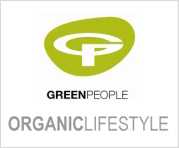The Politics of Shopping on the High Street by Katherine Rusack
 Endless rails of temptation; shimmering silks, rich velvets and pretty prints… whilst you’re searching for some new clothes it can sometimes feel like a moral maze of dilemma. How can you find out who has produced the clothing and under what conditions? Knowing that garment factories can be a less than desirable place to work is a start. However, how you can you act on your ethics to support brands who are genuinely trying to improve their supply chains and the people working for them, whilst avoiding those who are encouraging this glamorous industry to get dirty?
Endless rails of temptation; shimmering silks, rich velvets and pretty prints… whilst you’re searching for some new clothes it can sometimes feel like a moral maze of dilemma. How can you find out who has produced the clothing and under what conditions? Knowing that garment factories can be a less than desirable place to work is a start. However, how you can you act on your ethics to support brands who are genuinely trying to improve their supply chains and the people working for them, whilst avoiding those who are encouraging this glamorous industry to get dirty?
You may look at the label and see “Made in India” or China or Romania or Turkey, but what difference does that make? Garments claiming to be “Made in Italy” could actually be produced in the Ukraine with a few finish touches added in Italy, and garments made in the UK aren’t necessarily manufactured without using sweatshop labour, as seen recently on Channel 4’s Dispatches: Fashion’s Dirty Secret. Some brands deliberately don’t reveal where their garments are made, further confusing your decision.
A product manufactured in India hasn’t necessarily been produced in sweatshop conditions. Some may have the highest levels of certifications and have passed their audits with flying colours. The factory may well be involved in philanthropic activities, be actively improving their local environment; and the workers may be happy employed with full contracts. This type of factory brings real benefits to the local community, giving people a safe, secure form of employment; taking work away from it could push the community into further poverty.
The factories that are not regulated, existing in the informal economy, are the ones that you, and your favourite brands, should be worried about. Large factories often subcontract work to smaller factories when they themselves are unable to complete all the orders. A brand may not be aware that this unethical factory is even in its supply chain. The average high street retailer will have hundreds of factories supplying its products, which makes transparency a difficult, but not impossible challenge.
Will paying more for your garments guarantee that they are produced more ethically? Programmes like the BBC’s Blood, Sweat and T-shirts have shown us that brands of all different price points manufacture their clothes on the same production line, therefore a luxury brand may be no more ethical than your average high street retailer. However, this is not to say that price is irrelevant. If consumers demand that their clothes become cheaper and cheaper, somebody, somewhere has to take the cut. This somebody will undoubtedly be a worker at the beginning of the supply chain; the machinists, the dyers and the cotton farmers, who are paid less and expected to work longer hours.
So what are your options as a consumer, how can you as an individual push the industry to become more ethical? Do your research, look on the websites of your favourite brands, and see what their corporate responsibility clause is. Do they have their own charitable foundation and what does this do? Are they a member of the Ethical Trade Initiative, what do the reports say about them? If it isn’t clearly shown, email them to find out more. Whilst you’re shopping have a look at the materials used in the clothes, are they organic, Fairtrade or recycled? As a consumer you have a lot of political power…your purse! Shopping is a very political act; the high street offers you choice and you need to use your purse to vote for your ethics. If you’re not buying brands will want to know why and what they can do. A fashionable, intelligent, twenty-first century consumer shouldn’t have to compromise on their demands for quality and style with their ethics and it’s about time brands started to realise this. So go on, vote today!
Women
A wide selection of stylish fashion clothing for all occasions including: dresses, tops, knitwear, skirts, eveningwear, coats, suits, jackets and more. Styles to suit a variety of tastes from classic to vintage and more in between: recycled and upcycled. This is sustainable ethical fashion at it's best.
Women's Ethical ClothingMen
If you're looking for something eco or ethical to wear for dress down friday, a casual weekend or holiday, you'll find it here. Tops, t-shirts, jeans, trousers from mainly fairtrade and organic cotton.
Men's Ethical FashionKids
Green fashion for kids is fun and made mainly from natural fibres including organic cotton and Fairtrade cotton. From baby to early teens, there's something to make all kids happy. Bright colours, animals, fun shapes that children can wear all year round.
Kids Green ClothingAccessories
A treasure trove of accessories from around the world can be found here. A vast selection of jewellery including necklaces, bracelets, rings and earrings to shoes, hats, bags, handbags and scarves. Whatever your style, these items will complete any outfit.
Eco-Friendly Accessories





Comments are closed.